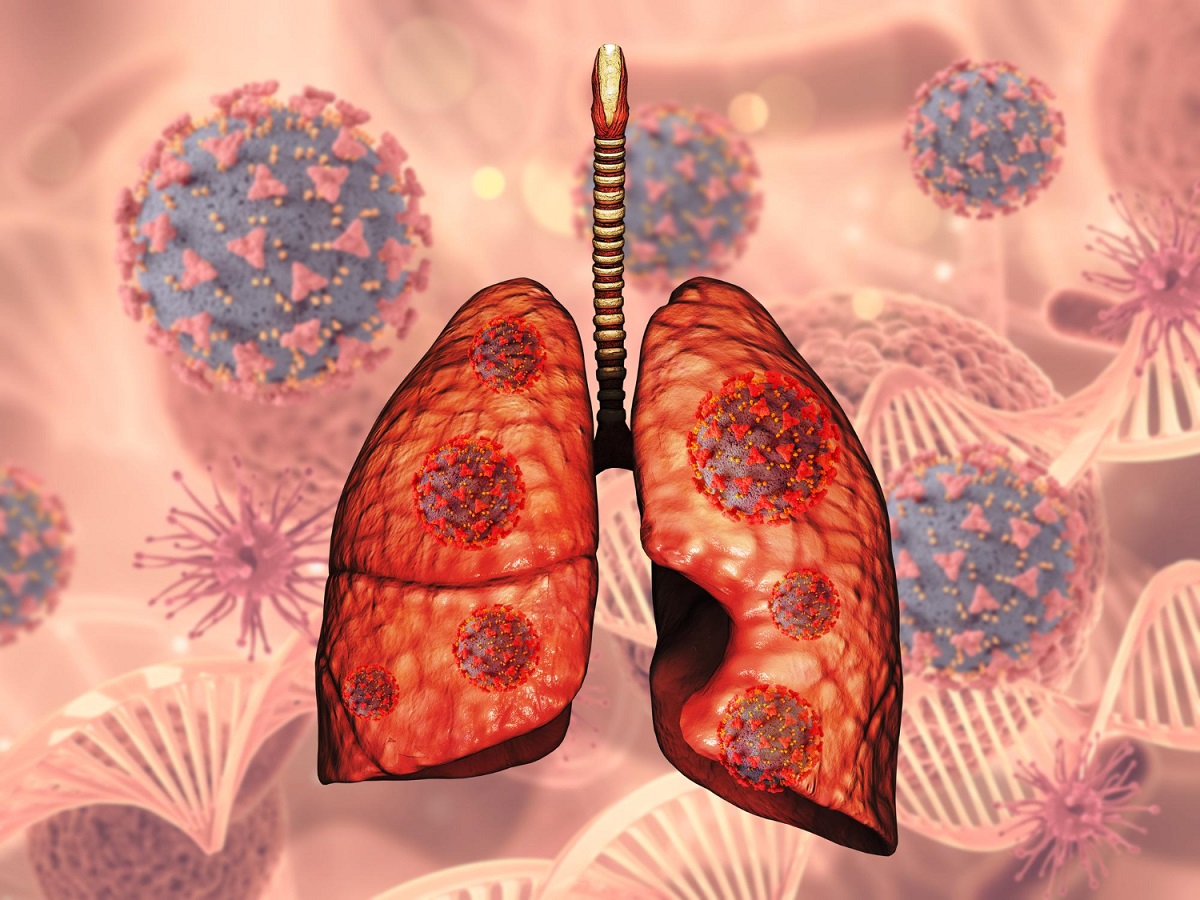KEY TAKEAWAYS
- The IMpower151 phase III trial aimed to compare the efficacy and safety of ABCP versus BCP as first-line treatment for metastatic nsqNSCLC.
- The primary endpoint was INV-PFS. Secondary endpoints included INV-PFS in the EGFR/ALK+ population, INV-PFS in PD-L1 subgroups, IRF-PFS, OS, ORR and DOR.
- The study didn’t meet primary INV-PFS in metastatic nsqNSCLC. ABCP showed numeric PFS/OS improvement vs BCP. It was well tolerated, with no new safety signals.
In the IMpower150 trial, atezolizumab and bevacizumab combined with chemotherapy significantly improved outcomes in metastatic nonsquamous NSCLC patients without EGFR/ALK alterations. This led to the approval of this first-line treatment for the specified patient population.
For a study, researchers aimed to compare the efficacy and safety of atezolizumab, bevacizumab, carboplatin, plus paclitaxel or pemetrexed (ABCP) versus bevacizumab/carboplatin/paclitaxel (BCP) as a first-line treatment for metastatic nonsquamous non-small cell lung carcinoma(nsqNSCLC).
The study assigned patients in a 1:1 ratio to receive either atezolizumab/placebo (1200 mg) in combination with bevacizumab (15 mg/kg), carboplatin (AUC 6), and paclitaxel (175 mg/m2 or pemetrexed (500 mg/m2) via intravenous infusion every 3 weeks for 4 cycles. This was followed by maintenance treatment with atezolizumab/placebo until unacceptable toxicity or loss of clinical benefit.
Bevacizumab and pemetrexed (if given during induction) were continued until disease progression based on RECIST 1.1 criteria. Stratification factors included EGFR/ALK genotype (alterations vs wild-type, capped at 50% wild-type) and PD-L1 expression (tumor cell <50% vs ≥50% by SP263).
The primary endpoint was investigator-assessed progression-free survival (INV-PFS) in the intention-to-treat (ITT) population. Secondary endpoints encompassed INV-PFS in the EGFR/ALK+ population, INV-PFS in PD-L1 subgroups, independent review facility (IRF)-assessed PFS, overall survival (OS), objective response rate (ORR), and duration of response (DOR).
With a median follow-up duration of 14 months, among the 305 randomized patients in the ITT population, 297 (97.4%) received pemetrexed and 239 experienced PFS events. The median INV-PFS for the ABCP group vs. the BCP group was 9.5 vs. 7.1 months(stratified HR, 0.84; 95% CI: 0.65, 1.09; P=0.1838).
INV-PFS aligned with independent review facility (IRF)-assessed PFS. PFS was similar between arms in the EGFR/ALK+ subgroup, while the wild-type subgroup showed numerical differences (10.4 vs. 7.0 months). No PD-L1-dependent PFS differences were observed.
All-cause adverse events (AEs) occurred in 99.3% (ABCP; Grade 3/4, 66.4%) and 100% (BCP; Grade 3/4, 61.4%) of patients, leading to treatment discontinuation in 23.0% and 15.0%, respectively. All-cause Grade 5 AEs occurred in 7.9% (ABCP; treatment-related, 5.9%) and 7.8% (BCP; treatment-related, 6.5%) of patients. AEs of special interest (AESIs) occurred in 67.8% (ABCP; Grade 3/4, 11.2%) and 71.2% (BCP; Grade 3/4, 7.2%).
The study did not meet the primary endpoint but showed promising OS benefits and acceptable safety in first-line metastatic nsqNSCLC.
Source: https://cattendee.abstractsonline.com/meeting/10925/presentation/2748
Clinical Trials: https://clinicaltrials.gov/study/NCT04194203
https://clinicaltrials.gov/study/NCT02366143
Zhou C, Dong X, Chen G, Wang Z, Wu X, Yao Y, Zhang Y, Cheng Y, Pan H, Zhang X, Cui J, Wang L, Chen X, Li X, Wang Z, Wang Q, He J, Wang M, Yan I, Qian L, An A, Cai A, Wu Q, Ballinger M, Wang L. IMpower151: Phase III Study of Atezolizumab + Bevacizumab + Chemotherapy in 1L Metastatic Nonsquamous NSCLC.



